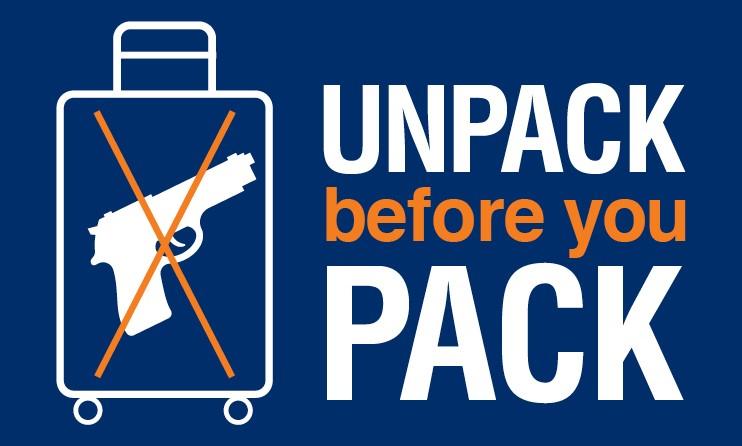Florida is not an open carry state; openly carrying firearms in public is generally illegal. Concealed carry is permitted with the appropriate licensing.
Florida’s gun laws are a subject of frequent discussion and interest for both residents and visitors. With its warm climate and diverse culture, the Sunshine State draws millions of tourists yearly, many of whom are curious about its stance on firearms.
While concealed carry is legal for gun owners with the necessary permit, Florida maintains strict regulations against open carry. This distinction is crucial for anyone wishing to stay on the right side of the law while in the state. Understanding these laws is essential for responsible gun ownership and ensuring public safety within Florida’s bustling cities and tranquil beaches.

Credit: flwarrant.org
Is Florida An Open Carry State?
When it comes to gun laws in the United States, there are wide variations from state to state. Florida has specific regulations regarding the carrying of firearms that residents and visitors must adhere to. Understanding these laws is crucial for responsible gun ownership and use in the Sunshine State.
The Legal Framework For Firearms In Florida
Florida operates under a ‘shall issue’ policy for concealed carry permits, meaning that the state provides licenses to carry concealed weapons to eligible applicants. Open carry of firearms is generally not permitted in Florida for the general public. Individuals carrying guns must have them concealed and possess a valid concealed weapon license.
State law stipulates that firearms must be securely encased or not readily accessible for immediate use. In Florida, a concealed carry license is valid for seven years and requires a background check, fingerprinting, and firearms training.
Exceptions To The Open Carry Rule
- Fishing, camping, and hunting: Florida law permits open carry for individuals engaged in, or going to or from, fishing, camping, or lawful hunting expeditions.
- Gun shows and ranges: Individuals may openly carry a firearm while participating in or attending gun shows and target shooting at a range.
- Law enforcement: On-duty police officers may open carry as part of their official gear.
- Private property: Property owners can carry openly on their own property.
Certain exceptions allow for open carry in specific situations despite the general prohibition. Always verify with the latest legal information or consult a legal professional when in doubt about gun laws in Florida.
Concealed Carry Permits
Focusing on gun laws in Florida, concealed carry permits are a significant aspect. The state stands firm on the rights of its residents to carry firearms. It is crucial for permit seekers to understand the eligibility requirements and the application process thoroughly.
Qualifications For Obtaining A Permit
To qualify for a concealed carry permit in Florida, there are specific criteria that must be met. These qualifications ensure that only responsible and eligible individuals carry concealed firearms.
- Age: Must be 21 years or older
- Residency: Must be a US citizen or a permanent resident
- Training: Completion of a firearms training course is required
- Background: Must pass a criminal background check
- Mental Health: No disqualifying mental health history
Process Of Application
Applying for a concealed carry permit involves several steps. It is designed to be straightforward yet thorough to ensure safety across the state.
- Complete the required firearms training course.
- Gather necessary documents, such as identification and training certificate.
- Submit the application along with the fees and documentation through mail or in person.
- Undergo a background check by the Florida Department of Agriculture and Consumer Services.
- Receive the permit by mail after application approval, which may take up to 90 days.
Gun-free Zones
The sunshine state harbors vibrant beaches, lush parks, and iconic attractions. Yet, for the safety and comfort of all, Florida enforces specific “Gun-Free Zones.” These spots are a no-go for firearms, open carry or otherwise. Let’s delve into the nitty-gritty of the regulated areas and the stringent consequences of any violations.
Regulated Areas Where Firearms Are Prohibited
In Florida, the law takes a firm stand on where you can carry a firearm. Knowing these zones is crucial for lawful gun carriers. They include:
- School grounds, including universities
- Professional athletic events
- Correctional facilities
- Polling places during elections
- Government meetings
- Bars, or places where alcohol is the main business
A look at other prohibited spaces is wise to avoid missteps.
Consequences Of Violations
Flouting gun-free zone laws lands offenders in hot water. If caught carrying where prohibited, the law doesn’t pat the back. Consequences include:
| Violation | Consequence |
|---|---|
| First Offense | Second Degree Misdemeanor |
| Second Offense | First Degree Misdemeanor |
| Further Violations | Third Degree Felony |
Each transgression escalates the severity. An initial mistake might be forgiven lightly. A habit of violations, however, pushes the boundaries towards felony territory. Abiding by the law ensures avoidance of penalties and contributes to a safe community for everyone.

Credit: www.mspairport.com
Recent Changes In Gun Legislation
The landscape of gun legislation is ever-evolving, and Florida is no stranger to shifts and turns in its firearm laws. Understanding the recent changes in gun legislation is crucial for residents and visitors alike, as it can significantly affect ownership and carrying rights. Let’s delve into the latest updates to these laws and what they mean for open carry regulations in the Sunshine State.
Updates To State Laws
Florida’s gun legislation has seen significant amendments. These updates can influence a range of factors including background checks, waiting periods, and carry regulations. Knowing these changes is vital for legal and responsible gun handling in the state.
- Introduction of new bills affecting carry and storage.
- Revision of existing statutes to enhance clarity.
- Adjustments in eligibility requirements for gun ownership.
Impact On Open Carry Regulations
A central area impacted by legislation updates is open carry regulations. Florida’s open carry laws are generally restrictive, with open carry mainly illegal. Yet, the amendments brought forward nuances every citizen must comprehend.
| Legislation Change | Impact on Open Carry |
|---|---|
| Clarification on restricted areas | Defines where open carry is not permitted. |
| Modification in carry exceptions | Specifies conditions under which open carry might be legal. |
| Consequences for violations | Outlines penalties for unlawful open carry. |
Any adjustments to open carry laws directly influence how individuals may lawfully carry firearms in Florida. Staying informed is key to navigating the legal landscape and practicing responsible gun ownership.
Understanding Reciprocity With Other States
When you hold a concealed carry permit from Florida, it’s crucial to know where it’s valid. Simply put, “reciprocity” means one state accepts another’s concealed carry permits. Florida has specific agreements that allow its permit holders to carry concealed in other states. In the same way, many states grant rights to those with permits from outside their borders. Understanding these agreements ensures that you stay within legal boundaries while traveling armed.
States Recognizing Florida’s Permits
Florida’s concealed carry permits have wide acceptance across the United States. Here’s a list of states where your Florida permit is recognized:
- Alabama
- Alaska
- Arizona Other states in alphabetical order
This list helps you plan your travel while remaining law-abiding. Remember that state laws can change. Always check the latest regulations before your trip.
Florida’s Recognition Of Out-of-state Permits
Likewise, Florida respects permits from states that meet certain requirements. These typically involve background checks and firearms training. Here are states with permits Florida recognizes:
| State | Notes |
|---|---|
| Georgia | Must be 21 or older |
| Pennsylvania | Resident permits only |
This reciprocity means travelers to Florida can carry concealed with their home state’s permit, as long as it’s recognized. Always confirm your home state’s permit is valid in Florida before carrying concealed.
Self-defense Laws
Understanding the self-defense laws in Florida is critical for residents and visitors alike. A key component of these laws includes regulations surrounding open carry and the use of firearms in life-threatening situations. Clarity on these statutes ensures responsible and legal action when faced with danger.
Stand Your Ground Law Explained
Florida’s Stand Your Ground Law allows individuals to use force in self-defense without the duty to retreat when they reasonably believe such force is necessary to prevent harm or death. This law applies to any place a person has a lawful right to be, making it a robust self-defense statute.
- Force can be used without retreating if you’re attacked in a place you have a right to be.
- Force must be reasonable under the circumstances.
- This law provides legal immunity in certain situations.
Using Firearms In Self-defense Scenarios
Florida’s laws permit using a firearm in self-defense within the boundaries of certain conditions. The key is the immediate and reasonable perception of a threat.
| Condition | Legality of Firearm Use |
|---|---|
| Within Your Home | Presumed reasonable (“Castle Doctrine”) |
| Public Space | Must be proportionate to threat |
| In Defense of Others | Allowed if they’re under immediate threat |
Applying lethal force in self-defense must always be a last resort. The law requires the threat to be both immediate and credible. This ensures actions remain within legal confines.
Comparing Florida To Other States
When comparing gun laws across different states, Florida stands out. It has unique rules. This can confuse people. To clear things up, we’ll look at open carry laws. We’ll see how Florida compares to the rest of the U.S.
Open Carry Laws Across The U.s.
Each state in the U.S. has its own gun laws. Some states allow people to carry guns openly. This means you can see the gun on them. Other states do not allow this. Let’s see how they differ.
- Open Carry States: Many states permit carrying firearms openly without a permit. This includes states like Arizona and Kentucky.
- Permit-Required States: Some states allow open carry but only with a permit. Examples include Oklahoma and Connecticut.
- No Open Carry: A few states, such as California and Florida, generally do not allow open carry.
Florida’s Unique Position On Gun Rights
Florida is known for its sunny beaches. But it also has strict open carry laws. Here’s a quick look at Florida’s gun laws:
| Law Feature | Description |
|---|---|
| Open Carry | Generally banned except in certain situations. For example, when fishing or hunting. |
| Concealed Carry | Licensed individuals can carry a concealed weapon. |
| Stand Your Ground | Florida allows you to use force in self-defense without retreating first. |
In contrast, some states have more relaxed laws. For instance, Texas allows open carry with a permit. Understanding these differences is key. Knowing your state’s laws is important for responsible gun ownership.

Credit: www.reddit.com
Frequently Asked Questions For Is Florida An Open Carry State
Can I Carry A Gun Without A Permit In Florida?
No, you cannot carry a concealed firearm without a permit in Florida. Open carry is also generally prohibited except in specific circumstances.
Can You Open Carry In Florida Now?
Open carry of firearms is generally not legal in Florida. Exceptions include hunting, fishing, or while practicing at a shooting range. Always confirm current laws as regulations can change.
Can A Tourist Carry A Gun In Florida?
Tourists with appropriate permits can carry guns in Florida, adhering to the state’s concealed carry laws. Non-residents must have a valid CCW permit from their own state that Florida recognizes.
Can I Carry A Gun While Hiking In Florida?
Yes, you can carry a gun while hiking in Florida if you possess a valid Florida Concealed Weapon License. Always check local regulations and follow state laws regarding gun carry in parks and forests.
Conclusion
Exploring Florida’s stance on open carry clarifies the state’s firm position. It remains a licensed carry state with specific regulations. For residents and visitors alike, understanding these laws ensures responsible gun ownership and adherence to local governance. Remember to stay informed on legislative updates to navigate Florida’s gun laws with confidence.




